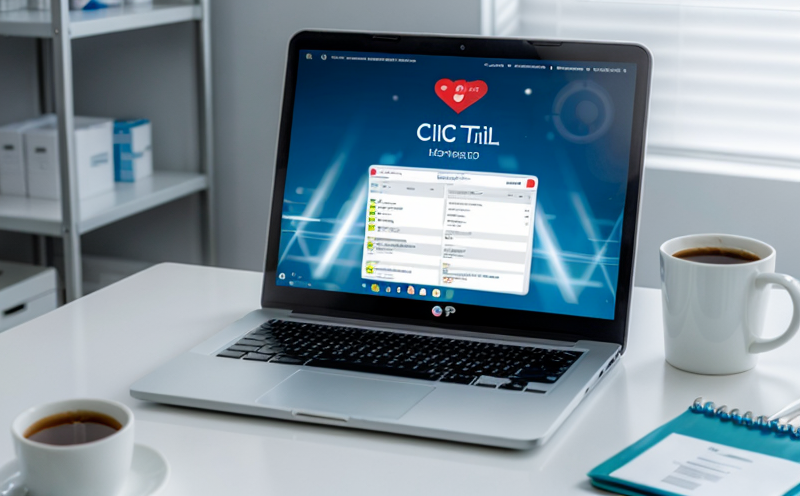
-
Pharmaceutical Compliance-
Pharmaceutical Good Clinical Practice (GCP)-
Clinical Trial Documentation and GCP Standards
We provide comprehensive solutions designed to help our clients mitigate risks, enhance performance, and excel in key areas such as quality, health & safety, environmental sustainability, and social responsibility.
Discover
For many years, our organization has been operating successfully, boasting modern laboratories that meet international standards. These laboratories are equipped with the latest technology devices and equipment, and we have built a strong team of experienced and trained personnel to operate them.
DiscoverWelcome to Eurolab, your partner in pioneering solutions that encompass every facet of life. We are committed to delivering comprehensive Assurance, Testing, Inspection, and Certification services, empowering our global clientele with the ultimate confidence in their products and processes.
Discover
-
Pharmaceutical Compliance-
Pharmaceutical Good Clinical Practice (GCP)-
Clinical Trial Documentation and GCP StandardsClinical Trial Documentation and GCP Standards: Ensuring Data Integrity and Compliance
Clinical trials are a critical component of the medical research process, allowing scientists to evaluate the safety and efficacy of new treatments or therapies. However, conducting clinical trials involves a complex web of regulations, guidelines, and standards that must be adhered to ensure data integrity and compliance with Good Clinical Practice (GCP) standards.
One of the most important aspects of clinical trial documentation is maintaining accurate and complete records throughout the trial process. This includes source documents, such as patient charts and medical histories, as well as electronic files and laboratory results. The 1996 ICH E6 (R2) guideline states that all source documents related to quality control should be retained for at least 15 years (ICH, 2016).
Another essential aspect of clinical trial documentation is ensuring data integrity. This involves verifying the accuracy of collected data through various means, including review and reconciliation of electronic files, as well as conducting regular audits and inspections. The FDAs guidance on Data Integrity and Compliance with cGMP for Combination Products highlights the importance of maintaining accurate records and preventing data manipulation (FDA, 2018).
Understanding Clinical Trial Documentation
The following bullets provide an overview of the key components of clinical trial documentation:
Patient charts
Medical histories
Laboratory results
Imaging studies (e.g., X-rays, CT scans)
Case report forms (CRFs)
Electronic patient-reported outcomes (ePROs)
Clinical laboratory reports
Blood work
Urine analysis
Imaging studies
GCP Standards: Ensuring Data Integrity and Compliance
The following bullets outline the key principles of GCP standards:
Clear explanation of the studys purpose, risks, and benefits
Review of any potential side effects or complications
Documentation of patient understanding and agreement to participate
Study objectives and endpoints
Patient selection criteria
Treatment administration and dosing schedules

Environmental Impact Assessment
Environmental Impact Assessment: A Comprehensive Guide Environmental Impact Assessment (EIA) is a c...

Electrical and Electromagnetic Testing
Electrical and Electromagnetic Testing: A Comprehensive Guide Introduction Electrical and electrom...

Pharmaceutical Compliance
Pharmaceutical compliance refers to the adherence of pharmaceutical companies and organizations to l...

Consumer Product Safety
Consumer Product Safety: Protecting Consumers from Harmful Products As a consumer, you have the rig...

Battery Testing and Safety
Battery Testing and Safety: A Comprehensive Guide As technology continues to advance, battery-power...

Environmental Simulation Testing
Environmental Simulation Testing: A Comprehensive Guide In todays world, where technology is rapidl...

Construction and Engineering Compliance
Construction and Engineering Compliance: Ensuring Safety, Quality, and Regulatory Adherence In the ...

Industrial Equipment Certification
Industrial equipment certification is a critical process that ensures industrial equipment meets spe...

Automotive Compliance and Certification
Automotive Compliance and Certification: Ensuring Safety and Efficiency The automotive industry is ...

Agricultural Equipment Certification
Agricultural equipment certification is a process that ensures agricultural machinery meets specific...

Trade and Government Regulations
Trade and government regulations play a vital role in shaping the global economy. These regulations ...

Fire Safety and Prevention Standards
Fire Safety and Prevention Standards: Protecting Lives and Property Fire safety and prevention stan...

Pressure Vessels and Installations Testing
Pressure Vessels and Installations Testing Pressure vessels are a critical component of various ind...

Food Safety and Testing
Food Safety and Testing: Ensuring the Quality of Our Food As consumers, we expect our food to be sa...

Healthcare and Medical Devices
The Evolution of Healthcare and Medical Devices: Trends, Innovations, and Challenges The healthcare...

Product and Retail Standards
Product and Retail Standards: Ensuring Quality and Safety for Consumers In todays competitive marke...

Aviation and Aerospace Testing
Aviation and Aerospace Testing: Ensuring Safety and Efficiency The aviation and aerospace industr...

IT and Data Center Certification
IT and Data Center Certification: Understanding the Importance and Benefits The field of Informatio...

Transportation and Logistics Certification
Transportation and Logistics Certification: A Comprehensive Guide The transportation and logistics ...

Renewable Energy Testing and Standards
Renewable Energy Testing and Standards: Ensuring a Sustainable Future The world is rapidly transiti...

Railway Industry Compliance
Railway Industry Compliance: Ensuring Safety and Efficiency The railway industry is a critical comp...

Electromechanical Safety Certification
Electromechanical Safety Certification: Ensuring Compliance and Protecting Lives In todays intercon...

Military Equipment Standards
Military Equipment Standards: Ensuring Effectiveness and Safety The use of military equipment is a ...

Lighting and Optical Device Testing
Lighting and Optical Device Testing: Ensuring Performance and Safety Lighting and optical devices a...

MDR Testing and Compliance
MDR Testing and Compliance: A Comprehensive Guide The Medical Device Regulation (MDR) is a comprehe...

Hospitality and Tourism Certification
Hospitality and Tourism Certification: Unlocking Opportunities in the Industry The hospitality and ...

Chemical Safety and Certification
Chemical safety and certification are critical in ensuring the safe management of products and proce...

NEBS and Telecommunication Standards
Network Equipment Building System (NEBS) and Telecommunication Standards The Network Equipment Bu...

Energy and Sustainability Standards
In today’s rapidly evolving world, businesses face increasing pressure to meet global energy a...

Cosmetic Product Testing
The Complex World of Cosmetic Product Testing The cosmetics industry is a multi-billion-dollar ma...